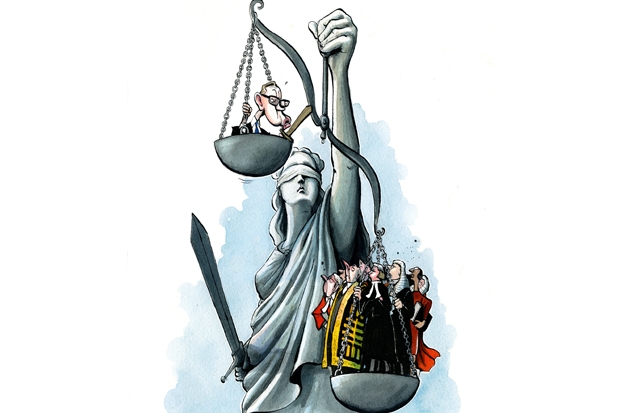People — nice people, members of the public, concerned voters — keep coming up to me saying, ‘We want to hear the arguments about the EU referendum.’ It sounds a strange thing to want because, since the last years of Margaret Thatcher’s government, the arguments have rarely been out of the news for a week, and jolly boring they often are. But what such people go on to say is that they seek the objective facts and cannot get them from either side in the campaign. They would like some useful fact sheet which answers all their questions.
Well, from time to time, papers like the Telegraph and the Times do contain short investigations of claims made about many of the issues involved, but the truth is that it isn’t easy. One’s judgment of the facts is bound to be affected by one’s view of the EU.
In his statement declaring for ‘leave’, for example, Michael Gove said that Mr Cameron’s ‘victory’ over Britain’s commitment to ‘ever-closer union’ could not have the force of law. The European Court of Justice (ECJ), he asserted, could always overrule any agreement (even this one which, as Mr Cameron’s people excitedly boasted, would be ‘lodged at the United Nations’) if it deemed it in conflict with the existing European treaties.
In my view, Mr Gove is right. His point goes to the heart of the matter, because the ECJ’s relentlessly one-directional political interpretations of EU law are what make the structure beyond redemption. It is a core objection to the EU way of doing things that facts are endlessly twisted to fit the teleology. But in such a politicised legal order, facts are murky. This argument is like Protestantism versus Catholicism, communism versus capitalism. The facts matter, of course, but they will never settle the question.
This is an extract from Charles Moore’s Notes. The full article can be found here.







Comments